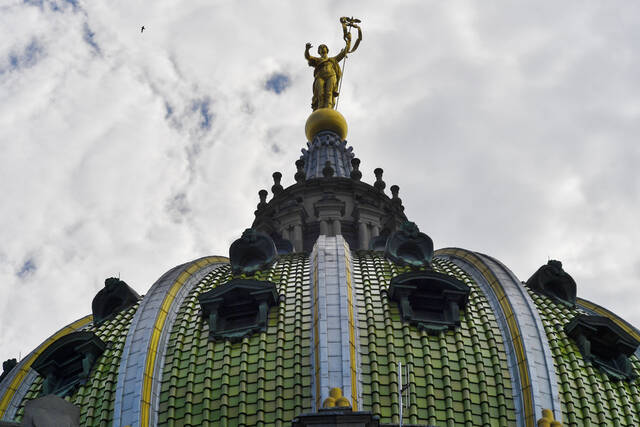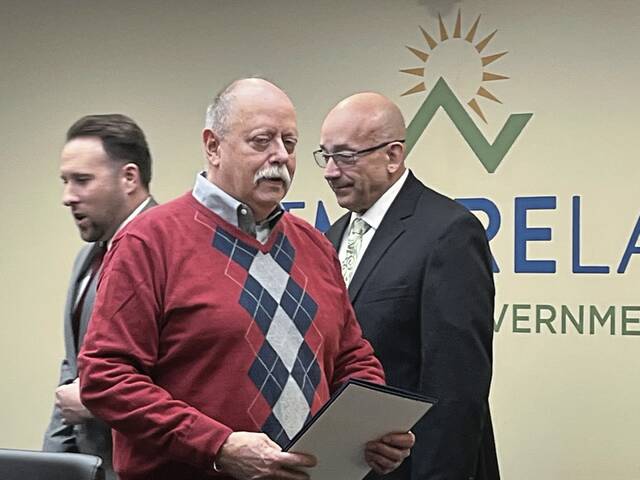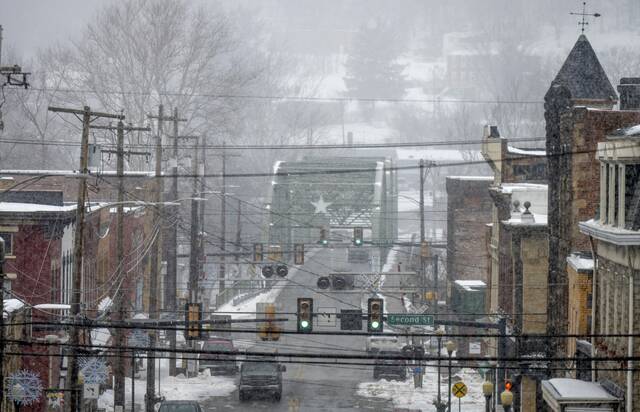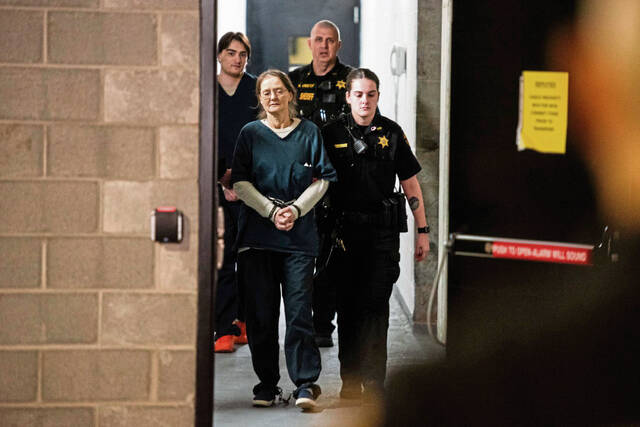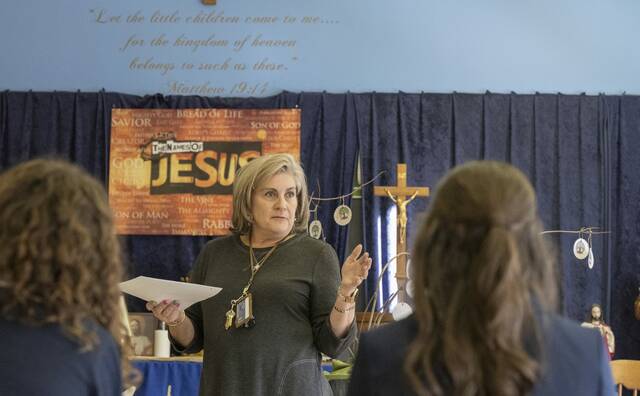Beaver County’s Hopewell School District planned to start a long-term renovation project of its aging high school this year.
But as the state budget impasse nears the four-month mark, the district has instead gone into conservation mode, said high school Principal Robert Kartychak.
About half of the district’s $49 million budget is dependent upon state funding. But Hopewell has only received $1 million from the state so far this academic year — about $23 million short of what the district expects, he said.
The district has delayed payments to charter schools and put its capital improvement projects on hold amid the impasse, dipping into its $7 million fund balance to make ends meet.
“As long as the state budget (impasse) continues,” Kartychak said, “the student experience at Hopewell will be impacted, as well as the district’s financial health for our community.”
Hopewell is not alone. Pennsylvania’s 500 public schools are missing nearly $4 billion in state funding at this point in the academic year, according to Sherri Smith, executive director of the Pennsylvania Association of School Administrators.
The state’s fiscal year began July 1. On Saturday, the impasse reaches 110 days.
Savings tapped
The impasse has forced Monessen City School District to dip into its fund balance to pay its bills, said Superintendent Robert Motte.
About 60% of the district’s $18 million spending plan for this academic year relies on state funding. The district has used about half — $2.5 million — of its $5.5 million fund balance to stay afloat amid the impasse, Motte said.
The district has not drawn significantly from the fund balance yet, he said. But if the impasse pushes into mid-December or January, district savings is likely to see a significant cut.
“Just our payroll alone is probably about $750,000 a month,” Motte said.
Because of the impasse, the district has put off replacing its auditorium sound and light system. Field trips and extracurriculars that require transporation may be put on hold if the impasse pushes into the winter months, Motte said.
The issue is further complicated by the absence of federal funding, which cannot be doled out to Pennsylvania’s public schools until a state budget is approved, Smith said.
New Kensington-Arnold is missing nearly $2.8 million in federal funding — about 5.6% of its total general fund revenue — because of the state budget impasse, business manager Jeff McVey told TribLive.
Budget planning impacted
The House passed a $50.25 billion budget Oct. 8 — about $1.25 billion short of the finance plan Gov. Josh Shapiro pitched this year. But the Senate has yet to vote on the matter.
“Each passing day, more school leaders are forced to make difficult decisions to postpone purchases, delay hiring staff and shutting down programs,” Smith said. “They are also making tough decisions to borrow money, delay payments to vendors and others — all unnecessary if we could pass a state budget.”
Related:
• Budget impasse leaves school districts in limbo over $4 billion in funding• Pa. budget impasse nears 3 months as schools, counties and others feel the pain
• As Pa. budget impasse drags on, proposals aim to prevent future ones
The impasse puts districts in a logistical bind, as business managers and school administrators prepare to launch into 2026-27 budget talks this winter.
Under Act 1, Pennsylvania school districts are required to present their boards in January with either a preliminary budget or a resolution saying they will not increase taxes beyond the maximum allowable limit, said Christopher Dormer, president of the state Association of School Administrators.
“Every day, every week, every month that the state budget delays, our preparation for the next year becomes that much more difficult.”
‘Our commonwealth’s responsibility’
Though the state recently passed a bill allowing the treasury to waive interest on loans taken out as a result of the budget impasse, Hollidaysburg Area High School teacher Mike Rawlins doesn’t believe schools should have to rely on them to operate.
“The commonwealth should not be expecting school districts to take out loans to pay for funding basic education,” said Rawlins, who has taught at the Blair County high school for nearly three decades.
“Basic education is our commonwealth’s responsibility to our current students and future students, and districts should not be having to take out loans and pay interest.”
The impasse also has left a mark on the state’s intermediate units, including Northwest Tri-County Intermediate Unit 5 — which assists schools in Erie, Crawford and Warren counties.
The intermediate unit supports children with disabilities, behavioral health challenges and special services. The organization has borrowed money to continue supporting students at its partnering schools, said Executive Director Brad Whitman.
“Each day without a budget pushes us closer to program cuts, staff reductions and disruptive services,” Whitman said.


